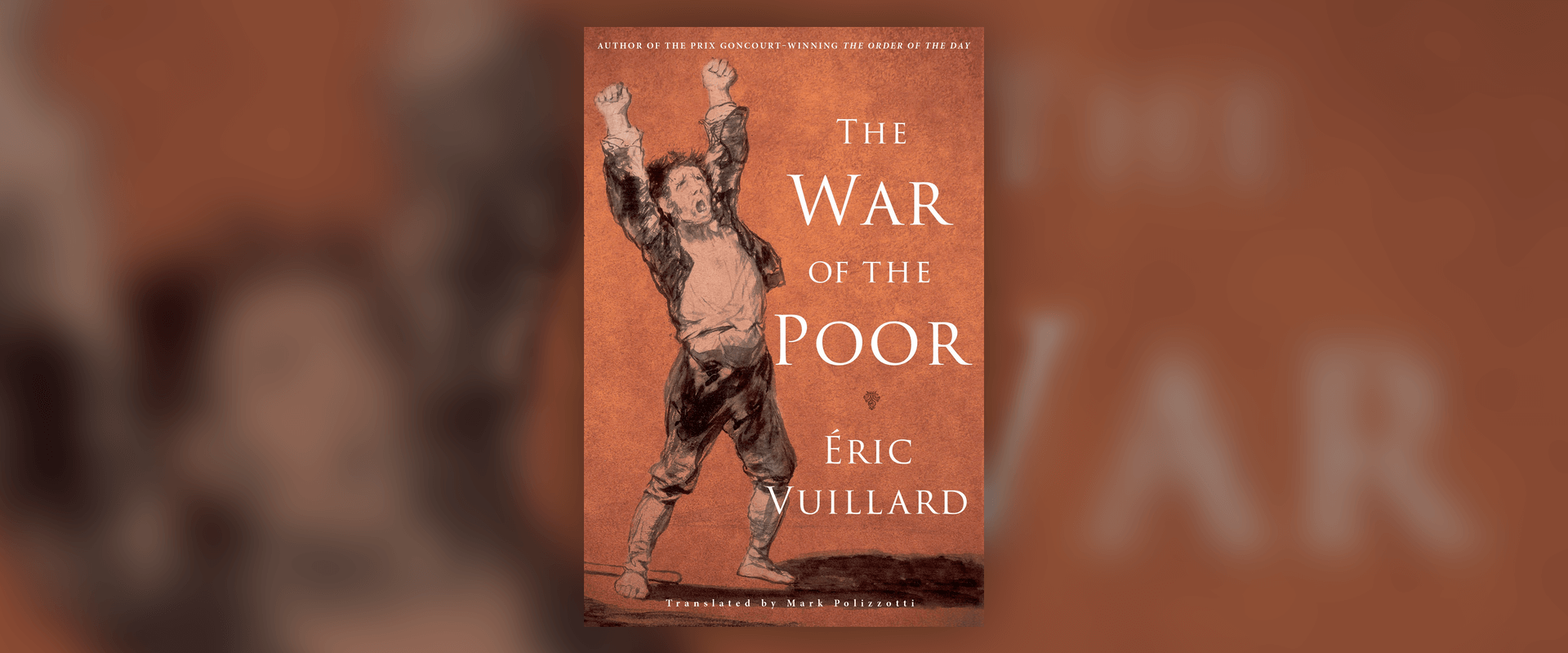Book Report: "The War of the Poor" by Éric Vuillard
· June 27, 2021 · books ·
 "The War of the Poor" by Éric Vuillard
"The War of the Poor" by Éric Vuillard
A quick and emotional read, sprinting through the anger and violence of several class uprisings from the 14th to 16th centuries in Europe. Vuillard injects enough commentary to tie the events to the present day. Since reading the book, I've seen the author's works described as "historical essay with literary flourishes" which applies here as well.
The book is more concerned with conveying the feeling of being there, of understanding why people took the actions they did -- especially those who didn't live to tell their side or were coerced into supporting the ruling classes -- than on exhaustively providing a dry litany of events. As a result, it's memorable and thought-provoking. One of those books that will take a few hours to read but may spark many more hours of thought, or even several months of obsessive reading on the events described.
I can't find the exact link -- likely was an ephemeral IG story -- but I'm 99% sure I was pointed to The War of the Poor by a post from Evan Dahm. I'd honestly recommend reading and buying Dahm's work before this book.
A couple themes and patterns that jumped out to me:
Advances in communication technology sparking change
The invention of the printing press and subsequent distribution of The Bible is cited as a root cause of future upheaval. Information and knowledge, previously expensive and slow to spread, is quickly distributed to a larger population. The secondary effects of this jump forward are not easily predicted and become mixed with pre-existing problems.
In this situation, dissatisfaction among serfs and lower classes was suddenly injected with holy knowledge. Not only was this knowledge ripped out of the hands of the ruling class, but directly condemned them.
Religion as catalyst for extremists and violence
"Leave everything and follow me," Jesus said, and yet here are these priests, bishops, popes living in palaces. "They began to realize they'd been lied to," writes Vuillard. "They had a hard time understanding why God, the God of beggars, crucified between two thieves, needed such pomp. Why his ministers needed luxury of such embarrassing proportions. Why the God of the poor was so strangely on the side of the rich."
The very material and worldly complaints of the ruled -- taxes too high, freedom of movement restricted -- become inflamed to violent extremes when injected with religious righteousness. "God has given power to the common people," wrote firebrand Thomas Muntzer to a Count. "The eternal living God has commanded that you be cast down from your throne by the power given to us; for you are of no use to Christianity."
The violence employed in the name of religion becomes a good, necessary solution to the ruling class, in the same way it applies to witches and heathens. "[Munzter] denies that anything can be changed amicably... no, that won't do, one needs trial by fire.... Godless rulers should be killed."
The state choosing violence again and again
The several uprisings detailed in the book begin with individual, personal acts of violence enacted by the state's representative. This sparks escalating reprisals, uprisings, mass destruction of property, and bloodshed against state representatives.
Critically, in each uprising there is a moment when the King, the Count, the Magistrate -- whoever stands as the final physical manifestation of The State itself -- finally turns their attention to the unrest and is forced to reduce themselves to the people's level. Negotiations occur, the violence pauses, and demands are put forth. At this point the people still retain their hope and faith in the state. Surely the King will hear us, they say, and help. "We always want to believe what the father says."
It is crucially the state which explicitly chooses in these situations, again and again, to weaponize this desire for a peaceful resolution. They use negotiations as "a means of combat" -- to delay, marshal their forces, draw out the ring-leaders and finally execute further mass violence against the people. Rather thousands slaughtered than one ounce of power be yielded.
"For the powerful never give up anything, not bread and not freedom."
| Previous | Next |
| Extracting colors from images for pre-loading, iOS 15 Safari, and more | Save Your Twitter Likes Without Using the API |